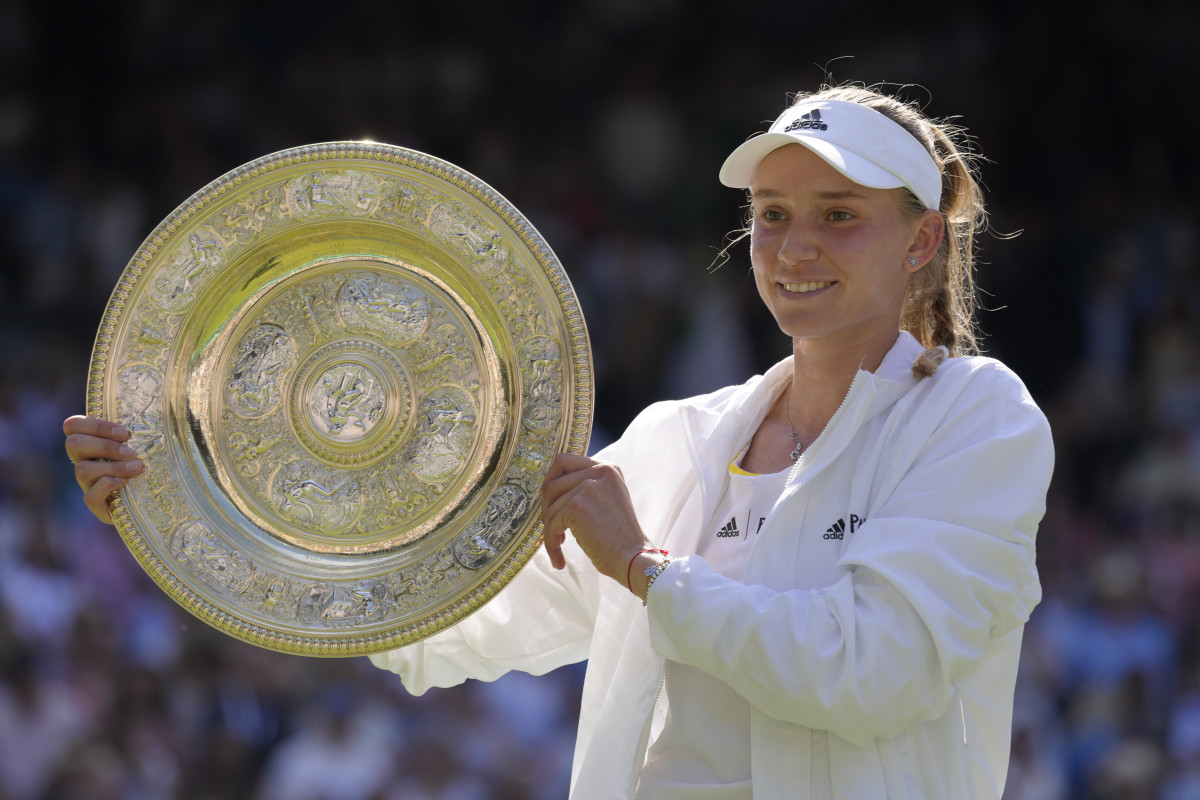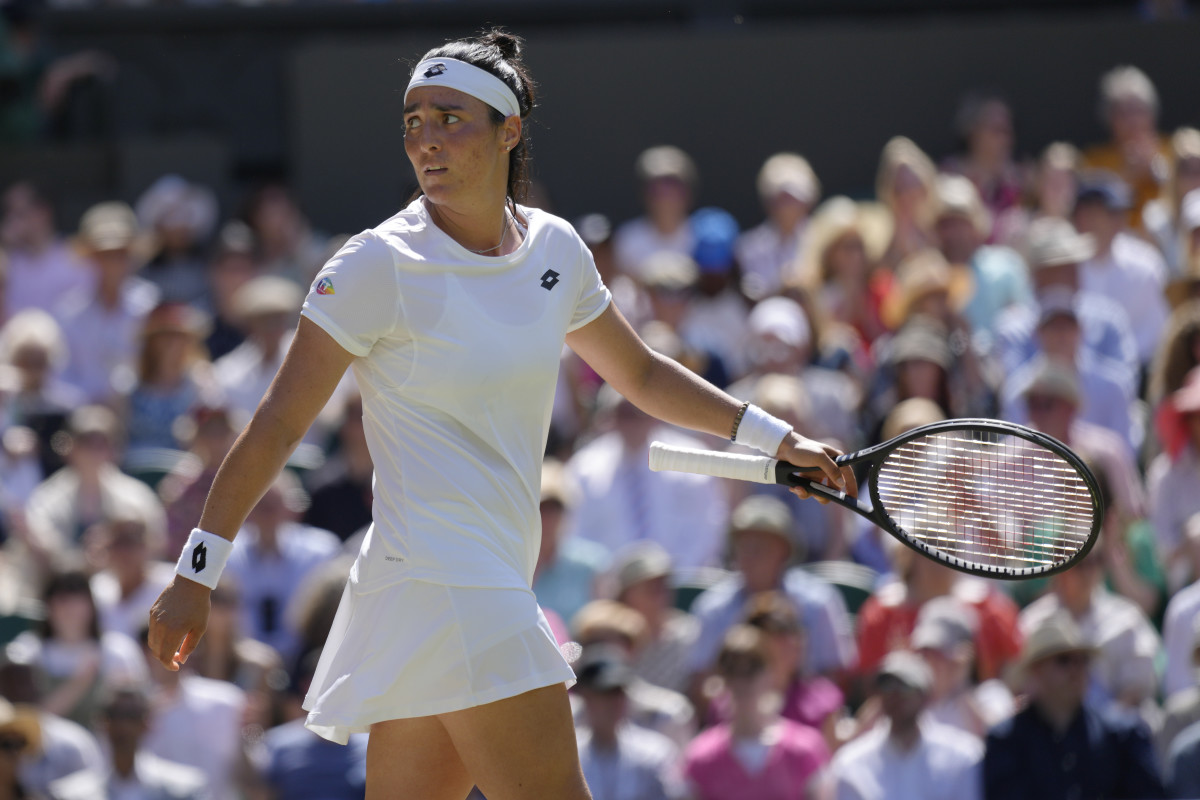Flawed Ban Overshadows Elena Rybakina’s Historic Win at Wimbledon


WIMBLEDON, England—Losing a tennis match on a stage as big as Centre Court is likely never a good feeling. Sometimes, a player is too good, you get blown off the court and all you can do is tip your cap to them and realize it just wasn’t your day.
Other times, the matches are about Xs and Os, or how players handle the moment.
For Ons Jabeur, the darling of this tournament for fans and reporters alike, it was a bit of all of the above in Saturday’s women’s singles final against Elena Rybakina.
Both competing in the biggest match of their lives, the first Grand Slam final appearance for them and their respective countries, the strange match reflected their lack of experience in this moment and showed in the final tally—a 3-6, 6-2, 6-2 win for Rybakina.
“Happy that it finished, to be honest, because really, I never felt something like this,” Rybakina said during her post-match on-court interview.
Jabeur prepared for Wimbledon by playing doubles with Serena Williams and sharing her emotions around wanting to inspire other Tunisian kids to pick up the sport. People within the tennis world already knew she was a charming player and person who was also well-liked by players. She was aiming to be the first Arab woman and first African woman to win a major title. And she was the favorite heading into this final. She played the role perfectly in the first set, betraying few nerves, losing only four points on serve to take the frame.
It appeared as though the second set would be a formality, but the match quickly flipped.
Rybakina began to read Jabeur’s quirky game and settled into the match, showing real athleticism to go along with her power. She is perhaps the best server in women’s tennis, but she showed how well she could play on defense, as well. As Rybakina started taking away one of Jabeur’s weapons—her beautiful drop shot—Jabeur’s unforced errors started spiking and she grew more and more frustrated. It’s all a credit to Rybakina, who did not succumb to the pressure of the moment.
The sixth game of the third set was the epitome of this. Down 3-2 in the set, Jabeur used a drop shot and a well-placed lob to go up 40-love on Rybakina’s serve. But after two big serves, both around the 120-mph range, the 23-year-old erased three break points, eventually held serve, and went on to win the match.

Jabeur will surely be disappointed not to close out this match, especially on top of losing in the first round of the French Open. But we have not seen the last of Jabeur, who, at 27, is maturing into her game despite the sting of these back-to-back Slam results.
“I love this tournament so much. I feel really sad. But it’s tennis. There is only one winner,” Jabeur said. “I'm really happy that I'm trying to inspire many generations from my country. I hope they’re listening.”
The big story coming into Wimbledon was the unprecedented ban on Russian and Belarussian players in response to Russia’s war with Ukraine. No one behind this decision wanted to glorify or see the sight of a Russian player raising the trophy so it could be used as propaganda by Vladimir Putin. It would have been too much to bear. But, in Rybakina, you have a player who was born and raised in Moscow. Her family still lives there. But she was able to play because she received funding from the Kazakhstan federation and changed her nationality.
As we’ve previously said, we don’t begrudge Rybakina for her decision and the ban was not of her doing, but there was something a little awkward about a player who is Russian in every way except her passport winning Wimbledon. That is not Rybakina’s fault, it’s about the overall decision.
Throughout the tournament, she has been measured and diplomatic when asked about the situation, likely aware of how politically charged it all was. We can’t help but feel for her, as the flaws of the ban truly came to bear Saturday.
Watch Wimbledon matches online with fuboTV: Try for free!
More Tennis Coverage:
